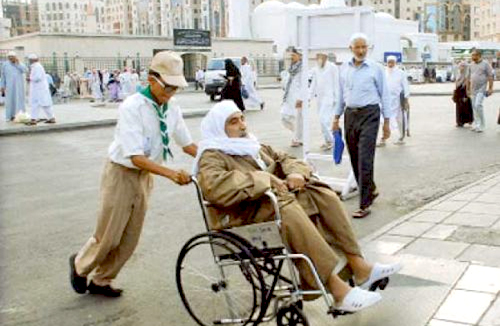
Makkah, Jul 1: The General Presidency for the Grand Mosque in Makkah and the Prophet's Mosque in Madinah has started implementing a plan prepared for the blessed month of Ramadan by recruiting more than 8,000 workers to serve Umrah performers and worshippers at the Grand Holy Mosque in Makkah.
Sheikh Mohammed Bin Nasser Al-Khuzayyim, Vice President for the Affairs of the Grand Mosque in Makkah, pointed out that the presidency was carrying out a comprehensive plan to receive the growing number of Umrah performers and other worshippers round the clock during the holy month conforming to the directives of the wise leadership of the country to provide the best services to the guests of God.
Sheikh Al-Khuzayyim commended Custodian of the Two Holy Mosques King Abdullah for ordering the massive expansion projects at the Grand Mosque and the holy sites, which included a project to increase the capacity of the mataf (the circumambulation area) from 48,000 pilgrims a hour to 105,000 pilgrims an hour.
Meanwhile, some 300 Boy Scouts will deploy at the Prophet's Mosque in Madinah to assist weak and elderly pilgrims to reach the mosque and back to their accommodations.
This was announced by the Department of Education in Madinah province on Sunday.
The program will be carried out under the direct supervision by Nasser Abdullah Al-Abdulkarim, Director of Education in Madinah, from the first day of fasting till the end of the holy month.
In a statement to the Saudi Press Agency, Al-Abdulkarim said the program comes under a strategy adopted by the Saudi government to cultivate voluntary spirit among young Saudis.
The strategy involves instilling values of dialogue, building bridges of communication and extending a helping hand to others, including the guests of God, he said.





Comments
Add new comment